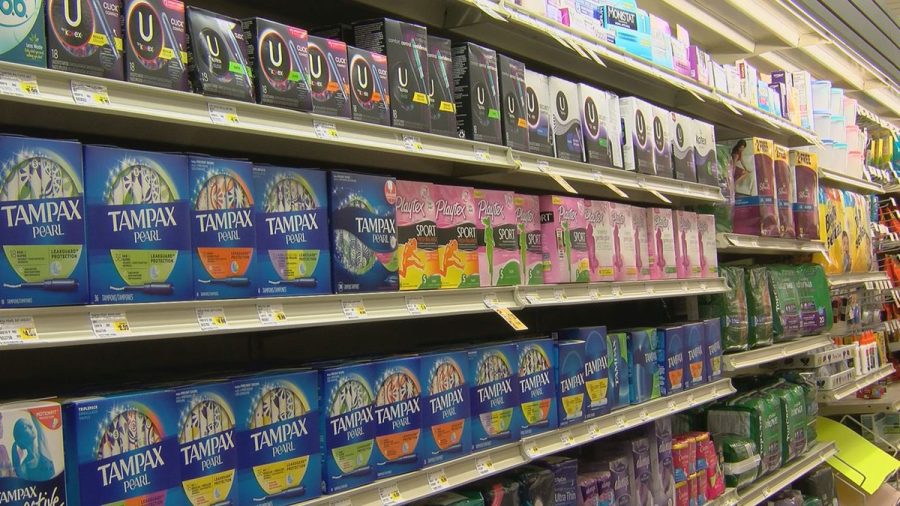End taxation on menstruation
Michigan Governor Gretchen Whitmer signed a bill that ended the 6% sales tax on menstrual products on Nov. 4, 2021.
On Nov. 4 2021, Michigan Governor Gretchen Whitmer signed HB 5267 — a bill which ended the 6% sales tax on menstrual products in the state. It is estimated that removing the tax on essential menstrual products could save families up to $4,800 over the course of a lifetime.
“After years of trying to repeal this tax, I am proud that we are bringing people together to put Michiganders first and drive down costs on these essential products,” Governor Whitmer said. “Everyone should be able to take care of their most basic healthcare needs without an unnecessary added financial burden.”
The unnecessary taxation on menstrual products is part of a wider issue referred to as the “pink tax.” The pink tax is not an actual tax, but a discriminatory economic practice which reveals, “common products and services marketed to women, ranging from razors and soaps to dry cleaning, often cost more than similar products marketed to men.”
The taxation on menstrual products in particular is an especially egregious act. Menstrual products are essential and no one should have to make a choice between purchasing tampons and purchasing food.
“Research shows that low-income women bear the greatest burden from the taxation of menstrual products,” Dr. Betsey Stevenson of The University of Michigan said. “Removing this tax makes our tax system fairer and correctly recognizes menstrual products for what they are: necessities for health and hygiene.”
So far, only 14 states have successfully repealed their tampon taxes, but that number needs to change. Repealing the tampon tax is critical for the health of menstruating women everywhere.
“If a person does not have regular access to these medically necessary products, it can be dangerous, even life-threatening, as well as increase the stigma associated with menstruation, especially for our young teens,” said Gilda Z. Jacobs, president and CEO of the Michigan League for Public Policy Feminine.
In a study from the Joint Economic Committee of Congress, there were many explanations theorized as to why the pink tax has endured. These explanations included price fixing, tariffs and product differentiation.
The committee also did not deny that discrimination was a factor stating, “If sellers find that women are less price sensitive and therefore willing to pay more for a particular product or service, they are more likely to charge a higher price for a version marketed to women.”
The pink tax system is unfair and unethical. Currently, federal law does not prohibit discriminatory pricing, but this needs to change. The price gouging on products for women proves that sexism in the United States is systemic.
Michigan and the 13 other states that have repealed their tampon taxes should serve as an example to the rest of the country. Repealing this tax can save citizens money, protect their health and avoid unnecessary financial burdens.
This change needs to occur at the federal level as well. The persistence of the pink tax unfairly targets women. It’s time for the federal government to step in and outlaw discriminatory pricing based on gender.







Yousef • Mar 28, 2022 at 10:06 AM
comments sections on OP are a joke. my previous comment, once again was censored.